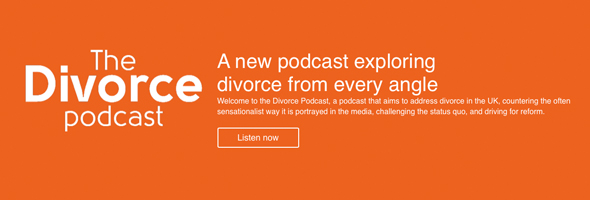In Sickness And In Health: Alzheimer’s And Divorce

- This blog contains affiliate links, which we may receive a commission for purchases. The decision is yours, whether or not you decide to buy.
This year World Alzheimer’s Day fell on Saturday, 21 September 2019. An international campaign, the day exists to raise awareness and highlight the issues people across the world affected by the disease face.
Current figures place over 850,000 people living with the disease in the UK but that figure is expected to rise to over 1-million by 2025. As more people face the disease, there is an inevitable increased impact on relationships, particularly couples and marriages.
We asked Rachel Roberts, Managing Partner, at the Stowe Family Law office in Leeds, who has experience of working on divorce cases where Alzheimer’s has been a factor, to explain some of the things you need to consider.
Whilst we vow to stay together through sickness and health living with someone with Alzheimer’s and the behaviour that this can sometimes result in, is extremely difficult and can be heart-breaking to deal with.
The clients that I have advised who are spousal carers are often in a state of absolute despair. Torn between extreme guilt of wanting to ‘walk away’ and the many difficulties that they face if they stay, they are often feel trapped and must deal with loneliness, mood swings and sometimes aggressive behaviour. It is heart-breaking to see a disease destroy a marriage and a couple.
The purpose of this article is not to make a judgement as to whether it is the right thing to do or cruel to divorce someone with Alzheimer’s. Instead, it is to look at the legal side of the process and the complexities of these highly sensitive cases.
When one person is suffering from Alzheimer’s, or a similar illness, the process of obtaining a divorce and financial settlement can be more complicated and there are various issues that need to be considered.
Divorce or a judicial separation
Often the decision to seek a divorce can be fraught with guilt or sadness if the behaviour leading to the divorce arises from the illness, and a sensitive approach is needed.
For some people, the issue is around the protection of their assets (if the ill party is behaving recklessly with money), rather than the marriage being at an end. One option here is to explore a judicial separation so that a financial settlement can be achieved without ending the marriage.
Capacity to make decisions
Whether you go down the route of judicial separation or divorce, the first issue is to consider capacity, and whether the person with Alzheimer’s is legally considered able to make decisions and give instructions to a solicitor. In many cases, they will not be, and it is vital to understand this at the earliest opportunity and to obtain medical evidence.
If the person lacks capacity in the eyes of the law, this does not prevent the Court dealing with divorce and financial remedy proceedings, but an application would need to be made to Court for someone to act as a litigation friend for the person with the disease.
A litigation friend
A litigation friend will essentially make decisions on their behalf and step into their shoes. Ideally, this would be a family member or friend, and in some cases, the incapacitated party may already have someone appointed a power of attorney or there may be a court-appointed deputy who can fill that role.
If that is not the case, the ‘Official Solicitor’ can step in and fill that role. However, my experience of this is that it can result in significant delays and additional costs. The Official Solicitor on one of my cases was (perhaps understandably) very cautious in negotiations which resulted in the matter proceeding to a contested hearing. However, this may be the only option available if there is no other suitable person.
Other issues
Aside from the legal practicalities, a person with Alzheimer’s may also have increased needs, for example, if they have carers, or are in a residential home. The Court must consider both party’s needs when deciding what financial awards to make, and this may, therefore, be a factor that impacts upon the settlement.
This article originally appeared on the Stowe Family Law Blog
You may also like
Books
Buy now from Amazon
- The Power of Positive Energy
- Manifest: The Sunday Times bestseller that will change your life
- Parenting Apart
Podcast
Kate Daly is co-founder of amicable and host of the The Divorce Podcast. Kate created The Divorce Podcast to discuss and demystify divorce, separation and co-parenting in the UK. In each episode, Kate is joined by experts in their field to explore divorce and separation from every angle.
Articles
- Divorce Mediation Explained
- 7 Things You Should Think About Before Filing For Divorce
- Is Online Mediation Right For You?
Videos
Practical advice and tips from professionals on what to do with issues and challenges around divorce from parenting to finance.
Events
Practical tips & advice designed to help people going through divorce, whether online or in person.
Useful links
Here's a selection of organistaioins from parenting to finance to help you with your divorce.
Health professionals
Related Posts
-

Gardening Through Divorce: Finding Healing And Growth In The Garden
-

Eating Your Way Through Divorce: A Guide To Nourishing Your Body And Mind With Healthy Foods
-

The Difficult Decision To Divorce A Loved One With Dementia
-

How To Look After Your Mental Health Before, During And After Divorce
-

Has Divorce Triggered My Eating Disorder?


.jpg)
.jpg)



.jpg)

